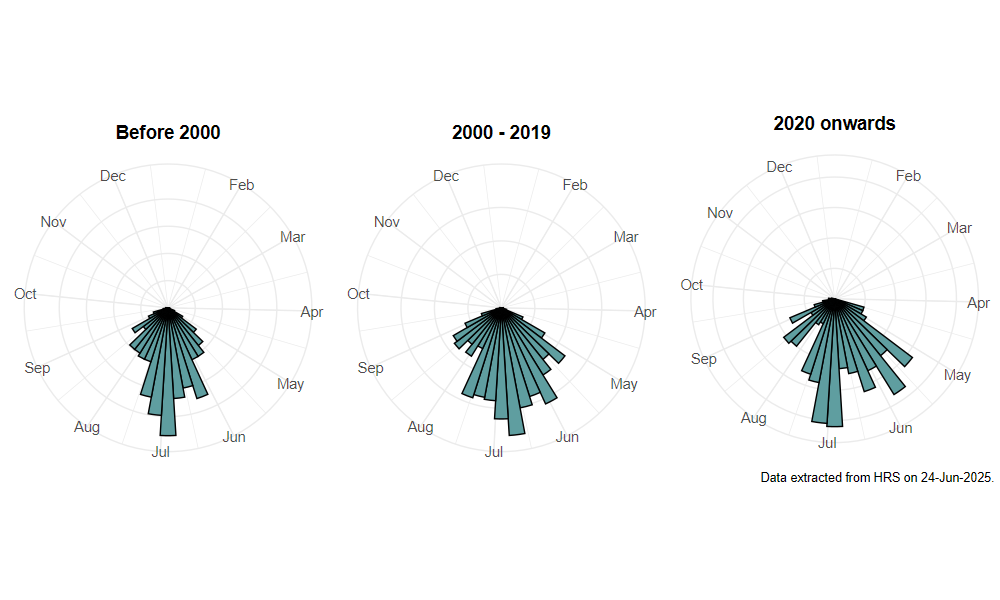Platycheirus angustatus (Zetterstedt, 1843)
Identification
Identification difficulty = 3. ![]()
![]() according to Ball & Morris, 20241
according to Ball & Morris, 20241
Biology
The larva feeds on aphids within the ground layer. Found in damp grassland situations such as marsh, fen and seasonally flooded, unimproved grassland. Adults fly low down amongst tall, emergent vegetation and are usually found by sweeping. Visits a range of flowers including the flower heads of sedges, plantains and grasses.
Flight period
The following plots show the number of unique records per week excluding those reported to be of immature stages.

Distribution
Widespread and common throughout Britain.

Trends
The following plots show the Frescalo TFactor vs year and a map of the rescaled frequency (all records) for the species.
-
Ball, S., & Morris, R. (2024). Hoverflies of Britain and Ireland. WILDGuides (3rd ed.). Oxford: Princeton University Press. ↩